




Charlotte Caputo of Marseilles suffered with breathing problems for years. After her doctor suggested a sleep test, she learned her breathing stopped often during the night.

Some 25 million Americans go to sleep at night and don’t realize they may stop breathing 15 to 65 times an hour. They are victims of Obstructive Sleep Apnea (OSA), and it’s about as dangerous as it sounds.
OSA occurs when soft tissues in the airway collapse during sleep and block the flow of oxygen to the brain. The brain senses a lack of oxygen and wakes the body up just long enough to take a breath, then the body falls back asleep.
Since she lived alone, Caputo had no idea her breathing was stopping throughout the night until she went on a rafting trip with some girlfriends.
“One of them woke me up and said, ‘Your breathing keeps stopping.’ Well, I got in for the test right away. That can affect your organs and overall health.”
The first remedy was a CPAP (Continuous Positive Airway Pressure) machine, which Caputo said worked fine. But then she heard that particular brand was recalled after being linked to cancer.
“I already had cancer, and I didn’t want to have it again,” said Caputo, 76. “I heard about the Inspire therapy in ads. My doctor referred me to Dr. Rajeev Mehta.
Dr. Mehta, a board-certified otolaryngologist on staff at Silver Cross Hospital in New Lenox, performed his
first Inspire therapy procedure there in November 2021. Caputo was intrigued when she heard about how it works…and that she could get rid of the cumbersome mask.
To be a candidate, Dr. Mehta said OSA sufferers must have been diagnosed with moderate to severe sleep apnea, cannot use or get constant benefit from a CPAP, are not significantly obese (BMI 35 or less), and must be 18 years or older.
The Inspire device system, implanted during a 90-minute surgery, delivers mild stimulation to key airway muscles, allowing the airway to open during sleep.

Caputo had her surgery Feb. 8, 2022, and it’s been a life-changer.
“It is wonderful,” she said. “I have a little implant, and when I push the button, a green light goes on, and I can feel it working.”
The Inspire implant delivers gentle pulses that move your tongue out of the way each time you take a breath, keeping your airway open while you sleep soundly. No mask or hose is required.
“It is the best thing I have ever done,” she said. “I would recommend it to anyone.”
If you or someone you love is experiencing a sleep problem, contact the Sleep Disorders Center for an initial consultation. For more information, please call (815) 300-REST (7378) or visit silvercross.org
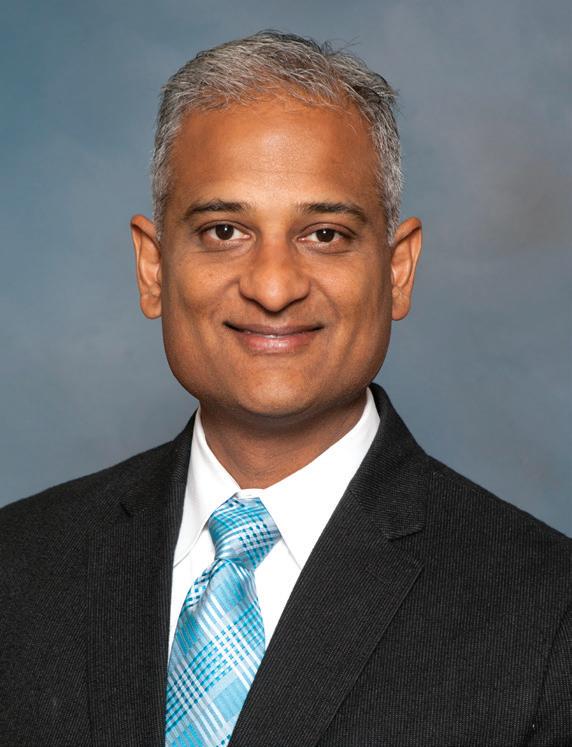


















Consistent sleep helps improve your overall health and well-being. That’s why at the Silver Cross Sleep Disorders Center, our mission is to help you get a good night’s sleep.
Under the medical direction of board-certified pulmonologist and sleep specialist M. Salah Lababidy, M.D., we can provide you with comprehensive testing, diagnosis and treatment of sleep disorders, including the very latest Inspire Therapy for sleep apnea. The Silver Cross Sleep Disorders Center is accredited by the American Academy of Sleep Medicine.
Sleep disorders can be diagnosed with a thorough exam from a pulmonologist or otolaryngologist (ear, nose, throat, head and neck (ENT) surgeon). This may be followed up with a sleep study to determine the severity of the problem and course of treatment. Sleep studies are performed in the Silver Cross Sleep Disorders Center, located in Pavilion A, Suite 525 on the Silver Cross Hospital campus. Most health plans are accepted.
Each spacious private room has a bathroom, calming décor and
comfortable bed to put you at ease. At the Silver Cross Sleep Disorders Center, technologists perform polysomnographic testing, and sleep studies that provide a detailed picture of your entire sleep cycle. The studies allow technicians to analyze your exact sleep pattern, from the onset of sleep through the 5 normal levels of sleep, to your breathing, oxygen levels, heartbeat, movement and snoring activity. Data from the study is invaluable in diagnosing and treating any sleep disorder you may have. The morning following your sleep study, our experts will begin to analyze your results. Some patients may begin treatment as soon as the same day.
• Sleep apnea and snoring
• Insomnia
• Narcolepsy
• Sleep-related breathing disorders
• Restless leg syndrome
• Periodic limb movement disorders
• You may need a sleep study if you are experiencing the following:
• You snore or stop breathing while sleeping.
• After sleeping for 8 hours, you still awake groggy or unrefreshed and feel fatigued throughout the day.


M. Salah Lababidy, M.D pulmonologist and sleep specialist
• You have difficulty concentrating.
• You nod off during everyday activities like reading or driving.
• You have short-term memory loss.
• You’ve had trouble falling asleep (or staying asleep) for at least a month.
• You suffer from another chronic condition such as depression or chronic pain that keeps you awake.
If you or someone you love is experiencing a sleep problem, contact the Sleep Disorders Center for an initial consultation. For more information, please call (815) 300REST (7378) or visit silvercross.org
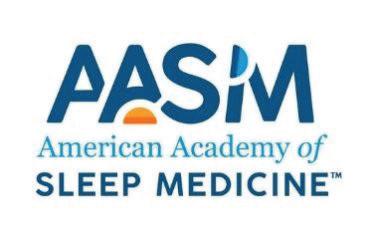






50% of people over age 50 suffer from varicose veins. When it comes to varicose and spider veins, there are several well-known factors that contribute such as age, gender, family history and pregnancy.
At Eterna MedSpa & Vein Laser Center while we are committed to providing the latest in technology and minimally invasive procedures to help you obtain healthy legs, we are also proponents of varicose vein prevention, says Kathe Malinowski.
Blood flow affects the entire body and there are several things you can do to help keep varicose and spider veins at bay, especially during the winter months.
In winter, we tend to become more inactive, the old “couch potato’ if you will. In addition to becoming less active we tend to eat sugary comfort foods. At Eterna MedSpa & Vein Laser Center we recommend some simple lifestyle changes to keep the blood pumping, says Malinowski.
All exercise is good, including stretching in the morning, midday and evening. Massaging your ankles and legs throughout the day can also assist with good circulation and not crossing your legs while sitting. In addition, elevating your legs for 30-minutes before sleeping helps.
The foods we eat can help with inflammation and stimulate good circulation throughout our bodies including our legs.
Some of the foods proven to stimulate circulation include; Beets, Garlic, Ginger, Whole grains, Salmon, Dark Chocolate, Pumpkin seeds, walnuts, onions and hot peppers to name a few. It is also a good idea to stay hydrated and reduce your salt intake.
Other lifestyle habits that can contribute to acquiring varicose and spider veins are Smoking, wearing high heels on a regular basis and standing/sitting for long periods of time.
If you find yourself needing to get varicose veins addressed, winter is a good time to seek treatment. It provides adequate time to complete treatment prior to Spring/Summer. In addition, winter attire can protect from harmful UV rays as your legs heal. In some Vein Disease procedures support stockings must be worn to keep the vein closed off. People don’t mind wearing them in the winter, says Malinowski.
For a FREE Vein Screening call Eterna MedSpa & Vein Laser Center today.
Eterna MedSpa & Laser Vein Center : 217 Vertin Boulevard, Shorewood, 60404 : 815.254.8888 : https://www.eternalaser.com







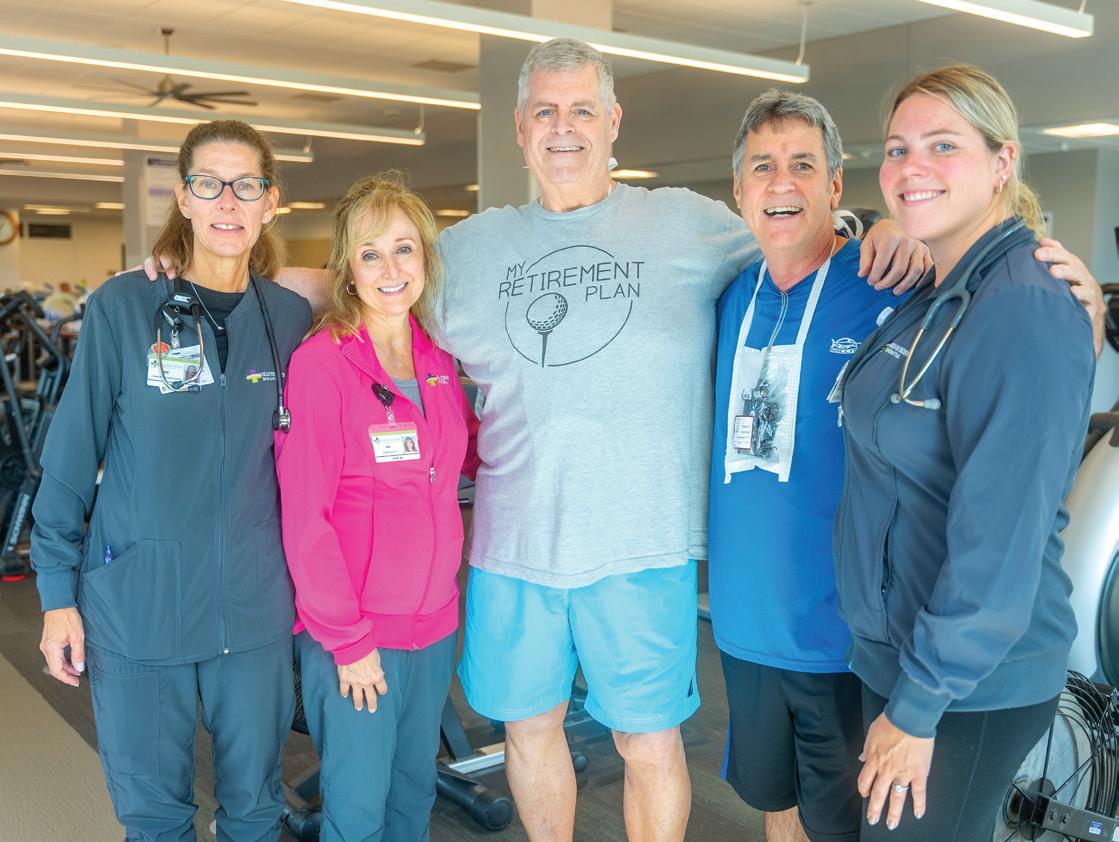
Although they both live in Orland Park, cousins Bob Callahan and Neil Coleman said they’d see each other only at family events, not like when they were younger and sometimes vacationed together. But since July, they have seen each other three times a week during cardiac rehabilitation therapy at Silver Cross Hospital in New Lenox, as each recovers from lifesaving heart surgeries in May.
Coleman, now 67, saw an ad for $49 Heart Scans at Silver Cross. And even though he has been a vegetarian for 11 years, takes care of his body and hadn’t had any symptoms (more on that later), he decided on a lark to get one of the scans.
“It’s $49, I don’t have to go through insurance, and I expected I’d take the test, and they’d say everything looked fine,” he explains. “It didn’t. The scale goes from 0 to 300, with 0 being no problems, to 300 for having some issues. Mine was 2,391. After that, I made my wife, kids, relatives and friends get a scan. Theirs were all good, thankfully.”
But Coleman learned through an angiogram he would need 17 stents, which wasn’t medically feasible.
one of the other patients graduates from rehab, they’ll give them a little gift. They seem to bond with people.”
That’s an understatement. Coleman and Callahan said they already are forming a group to go out for breakfast or lunch once a month to keep in touch.
“We already have a name for the club,” Callahan said. “ROMEO. Real Old Men Eating Out.”
would go away. I figured everyone got chest pains sometimes. It was just normal. My doctor said, ‘No, that’s not normal,’ and referred me to a cardiologist immediately.’”
“I said, ‘Do I have a widowmaker?’ They said, ‘You have four widow-makers. A heart attack is imminent, and it would kill you.’”
Cardiothoracic surgeon Dr. Pat Pappas performed a quadruple bypass in May, and Coleman was in Silver Cross for five days.
“I felt great,” he said. “The whole team, the doctors, nurses were great.”
About five weeks later, Coleman was scheduled for cardiac rehab at Silver Cross. Thirty-six sessions, three days a week for 90 minutes. After touching base with Callahan, he learned his cousin would be starting cardiac rehab at Silver Cross July 15.
“He asked if it was possible to be scheduled at the same times,” said Kim Mason, Clinical Director of Cardiac Rehab at Silver Cross. “So, we arranged that.”
Callahan and Coleman not only have been model patients, but models for the other patients attending rehab there.
“Sometimes, they’ll get there early for their appointments, and we’re still at lunch. They’ll see some new patients who look worried and talk to them about what to expect. They’ll even show them around a little to make them more comfortable,” she said. “And when
For now, the cousins say they’ve been able to catch up on family, and discuss sports and other issues of the day, except when the treadmill requires their focus. Callahan said cardiac rehab staff has been great in making sure they’re pushing themselves, but not too hard or too fast.
“If I cough, one of the therapists will come over and ask if I’m OK,” he said. “They really keep an eye on you. The whole team. They are just wonderful.”
Mason said they get a lot of patients like Coleman, who said they didn’t have any symptoms, so they opted to have a heart scan at Silver Cross…just because, or while they were accompanying a spouse or friend.
After talking with his primary physician before his heart surgery, Coleman said he did have symptoms.
“I told her I would get chest pains now and then, but they
Neither the chest pains nor hearing about his cousin’s impending heart surgery through family channels figured in his getting the scan, Coleman said. He called Callahan before that surgery.
Callahan, now 69, said his primary care physician picked up an odd sound in his heart during a routine checkup and scheduled him for a stress test. The test picked up an abnormality, and he was then scheduled for an angiogram. He would end up having aortic valve surgery.
He had no symptoms before the routine checkup picked up the heart anomaly.
“That’s what’s scary,” he said. “I’ve always been into exercising and eating right.
“But now through rehab and the education classes at Silver Cross, I know better how to keep healthy. I would recommend Silver Cross to anyone. They help you do really great things there.”
For more information or to schedule a $49 Heart Scan at Silver Cross, visit silvercross.org
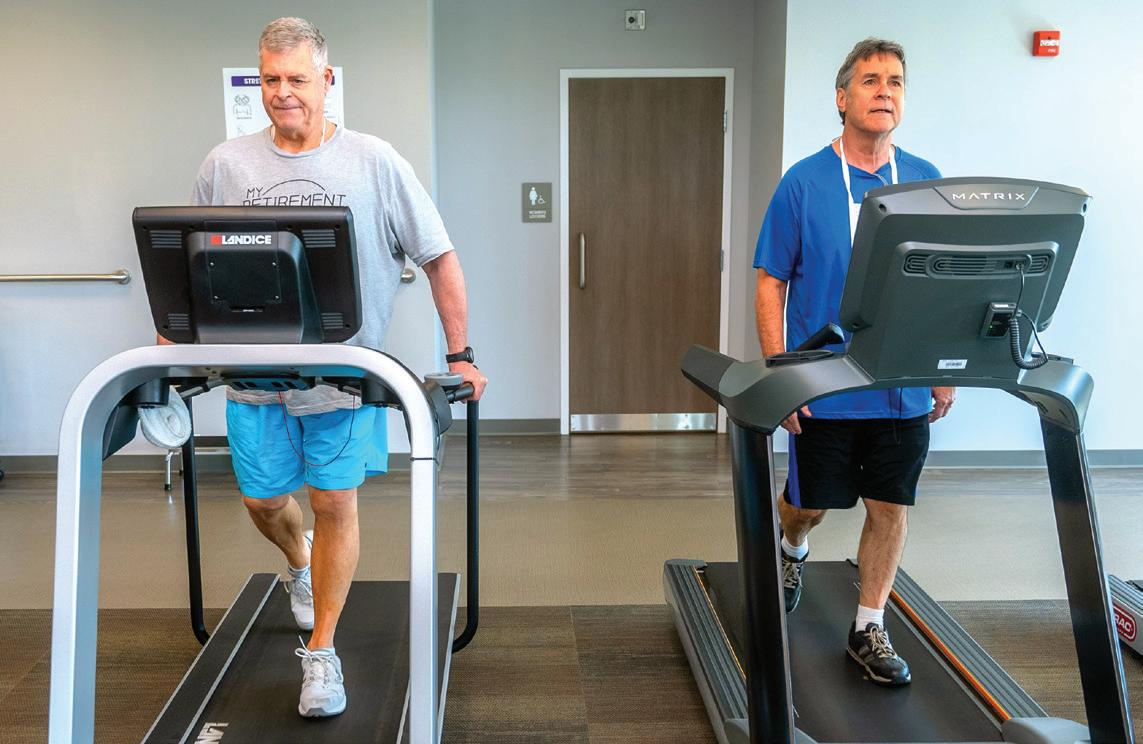
Patients requiring relatively minor heart and vascular procedures now have access to the all-new outpatient Heart and Vascular Center on the campus of Silver Cross Hospital in New Lenox. The first-of-its kind center at Silver Cross is located on the second floor of the Silver Cross Procedure Center at 678 Cedar Crossings Drive, on the east side of the hospital campus. The center, which opened Oct. 1, promises added comfort and convenience for patients.
But it’s been renamed the Procedure Center to represent the full spectrum of services now available on both the 1st and 2nd floors. The Heart and Vascular Center features the very latest Siemens technology, 6 pre- and post-procedure rooms and a team of highly skilled professionals.
“Now, select heart/vascular patients can have the same outpatient procedures performed by the same doctors and staff from our main hospital in a much more relaxed setting,” said Katie Lowe, Clinical Director of Cardiology.
The center also promises easier scheduling and access for both patients and physicians performing procedures.
“With a separate facility for outpatient procedures, patients will also have less exposure to hospital-acquired infections,” Lowe said. “We always put patient safety above everything else.”
The new Heart and Vascular
Center offers a variety of treatments, including minimally invasive interventional radiology procedures such as paracentesis, port insertion and removal and other ultrasound-guided procedures; cardiac catheterizations; and percutaneous coronary intervention (PCI), one of the most commonly performed cardiac procedures done to open obstructed coronary arteries.
What’s more, patients undergoing cardiac catheterizations and interventions will have them via radial-artery approach versus the femoral artery in the groin. That means minimal post-procedure bleeding, fewer complications, faster recovery and added patient comfort.
In addition to interventional
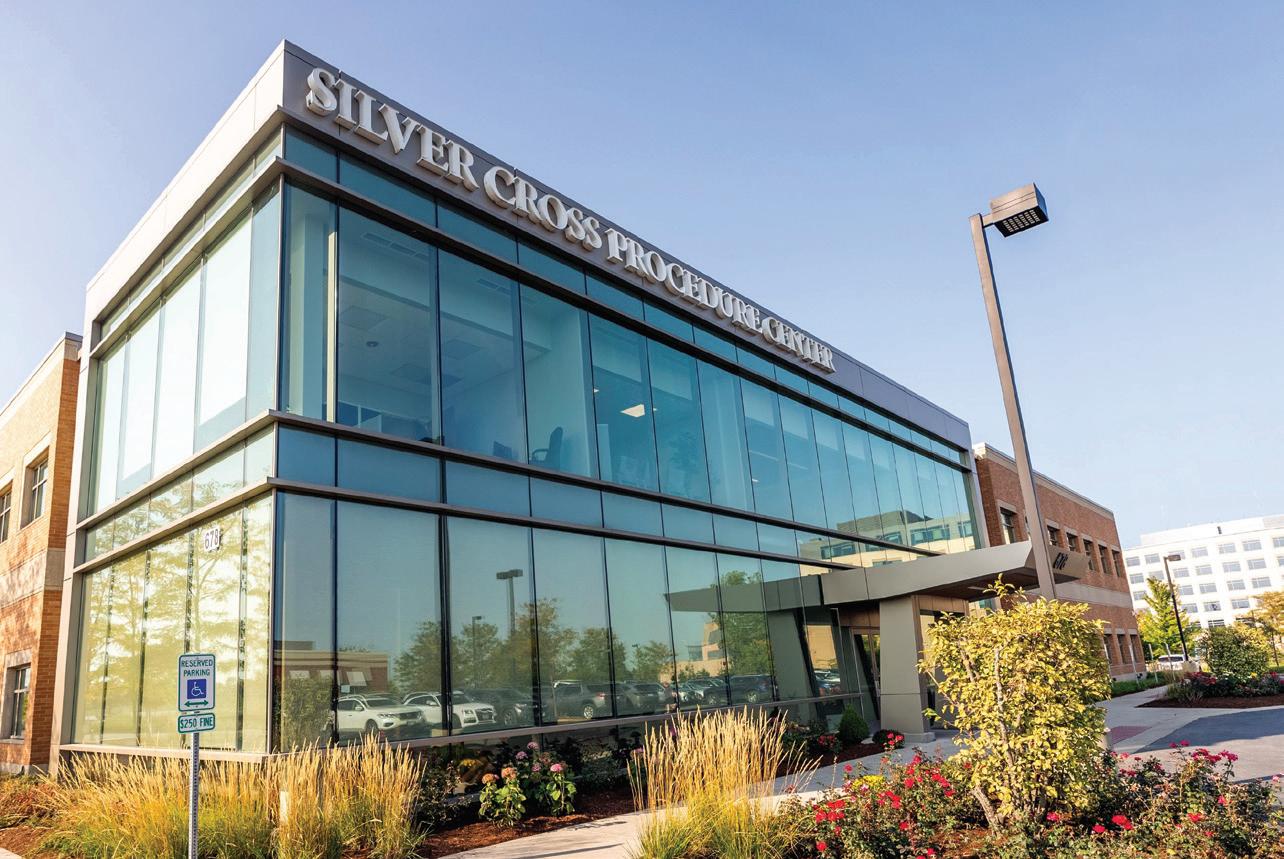
procedures, The Midwest Institute for Heart at Silver Cross offers diagnostic testing, open heart surgery and structural heart procedures, including minimally invasive valve replacement, and cardiac rehabilitation.
Silver Cross celebrated its fifth anniversary of open heart surgery earlier this year, and in just five years, the program is not only ranked among the nation’s best for quality and patient outcomes, it’s also among the five busiest heart programs in the State of Illinois.
With a growing number of patients requiring heart procedures at Silver Cross, the Heart and Vascular Center allows patients at minimal risk of complications the
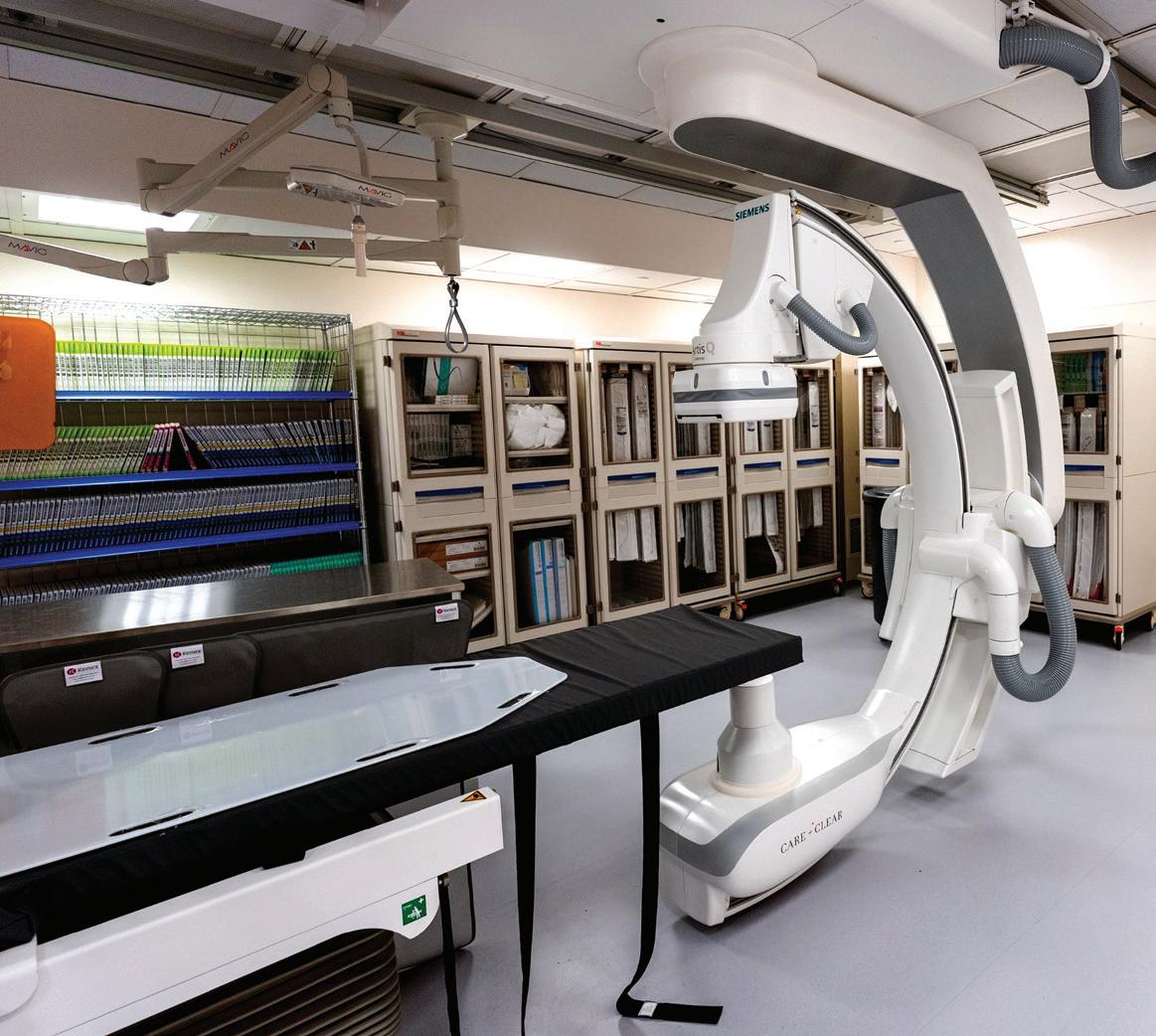
option of having their procedures in a more convenient and relaxed setting outside of the hospital.
Lowe added, “As well as providing a more comfortable atmosphere for outpatient heart/ vascular procedures, the new center also frees up resources in the main hospital for more acute (and emergent) heart care cases.”
The Silver Cross Heart and Vascular Center follows the guidelines of the Society for Cardiovascular Angiography and Interventions. To ensure patient safety and excellent outcomes, appropriate patient selection is key. The center also performs thorough pre- and post-procedural assessments.
If a patient requires a higher level of care after a procedure, he or she will be referred or transported to the hospital. The Heart and Vascular Center also maintains the same safety and quality metrics as the main hospital’s Interventional and Cardiac Catheterization Labs, including participation in the American College of Cardiology National Cardiovascular Data Registry.
“This is just another way that Silver Cross strives to get our patients and the community back to heart health,” Lowe added.
To learn more about the new Silver Cross Heart and Vascular Center, visit silvercross.org.


By Stefanie Henline Board Certified Nurse Practitioner Morris Hospital Neurology Specialists
As an experienced nurse practitioner, I see patients suffering from a variety of neurological issues, including concussions. Anyone who experiences a bump, blow, or jolt to the head should be promptly assessed for a concussion to minimize the potential long-term impact. Below are answers to some frequently asked questions to help you understand why it’s important to take concussions seriously. For additional information about how we can help, please follow the link to the Concussion Management Program page on the Morris Hospital website. www.morrishospital.org/services/concussion-management
What is a concussion and what are the symptoms?
A concussion is a type of traumatic brain injury caused by a bump or blow to the head or any accident that causes the head or brain to move rapidly back and forth. This trauma creates chemical changes in the brain that can damage brain cells if left unattended. Concussion symptoms include headache, nausea and vomiting, balance problems, blurred or double vision, sensitivity to lights or noise, feeling sluggish or foggy, memory problems and confusion or inability to think straight. Some people have one symptom or multiple symptoms.
What should I do if I think I might have a concussion?
We tell patients to go right to the emergency room. Or you can go to immediate care or your primary care provider. Don’t wait around at home. It’s important to get prompt medical attention. There could be bleeding within the brain or swelling of the brain which can cause a lot more issues further down the road.
Anybody can get a concussion, whether it’s from a car accident, sports injury, or even a simple fall at home.
can the Concussion Management Team at Morris Hospital help?
Most patients who are diagnosed with a concussion through the Morris Hospital emergency room or immediate care are referred to the Morris Hospital Concussion Management Program for an assessment with a provider who is experienced in safely evaluating the severity of the injury and carefully managing and monitoring the patient’s care during recovery. Depending on the patient’s symptoms and overall condition, patients may be referred for physical and/or speech therapy with a concussion trained therapist. It’s very important for patients to follow through with their concussion care.
It’s important that patients safely recover from a concussion, which is why it’s important to seek prompt medical care. To learn more about our Concussion Management Program, visit the Morris Hospital website, www.morrishospital.org/services/concussion-management or contact Morris Hospital Neurology Specialists, www.morrishospital.org/healthcare-centers/neurologyspecialists, at 815-942-4506.
To learn more about Stefanie Henline, N.P., visit her provider landing page at www.morrishospital.org/providers/ provider-directory/henline-stefanie-l-n-p

After 14 years practicing in Shorewood, family medicine physician Dr. Vincent Benig is now seeing patients at the Morris Healthcare Center of Morris Hospital located at 1345 Edwards Street, Suite 2 in Morris. Patients can schedule appointments with Dr. Benig by calling his new office phone number, 815-942-1421.
As a family medicine physician, Dr. Benig provides primary care for patients of all ages. In addition to diagnosing and treating illness, he provides a wide range of primary care, including preventive care, routine checkups, health risk assessments, immunizations, and personalized counseling on maintaining a healthy lifestyle.
“My philosophy of care is simple: be a good listener and really listen to what the patient is saying,” said Dr. Benig. “Being able to have an open conversation with mutual respect is the best way to understand the patients’ needs and help them feel better. That is always my goal.”
Dr. Benig received his Doctor of Medicine degree from the University of Illinois College of Medicine-Rockford and completed a three-year family medicine residency at Hinsdale Family Practice Residency. He is board certified by the American Board of Family Medicine and has more than 20 years experience as a family medicine physician.
As he makes the move from Shorewood to Morris, Dr. Benig says he will miss serving the community that has become home for him. He adds that although his practice has continued to evolve throughout the years, the one constant has been his close relationship to his patients.
“Thank you to all the patients I have served, and thank you to the community of Shorewood for their support over the years,” he said. “I am looking forward to the opportunity to continue to care for and treat patients at my new office in Morris.”
Serving patients at 26 locations, Morris Hospital & Healthcare Centers includes the 89-bed Morris Hospital, as well as physician offices in Braidwood, Channahon, Diamond, Dwight, Gardner, Marseilles, Mazon, Minooka, Morris, Newark, Seneca and Ottawa.


1345 Edwards St., Suite 2, Morris
Patients can schedule appointments with Dr. Benig by calling his new office phone number at 815-942-1421

Certain types of cuisine tend to inspire a little extra devotion, and seafood is one such food. Seafood is an umbrella term that refers to fish such as salmon and tuna as well as shellfish like shrimp, crab and oysters. That’s a wide range of foods, which underscores the versatility of seafood.
Versatility is one notable attribute of seafood, and diners can keep that in mind as they plan nights out on the town. Another worthy quality of seafood is its nutritional value, which is perhaps more significant than even the most devoted fish and shellfish lovers recognize.
• Fish is low in saturated fat. The American Heart Association notes that fish is not high in saturated fats. In fact, the AHA recommends eating two servings of fish, particularly fatty fish like salmon, each week. Additional types of fatty fish include bluefin tuna, oysters, mussels, herring, mackerel, and anchovies.
• Certain types of fish and seafood can help lower triglyceride levels. Eicosapentaenoic acid (EPA) and docosahexaenoic acid (DHA) are two types of fatty acids found in fish such as mackerel and salmon that are associated with heart health. The Cleveland Clinic notes that EPA and DHA help to lower triglyceride levels, which is beneficial for
a variety of reasons. According to the Mayo Clinic, high triglycerides may contribute to a hardening of the arteries or a thickening of arterial walls, a condition known as arteriosclerosis. Arteriosclerosis is a known risk factor for stroke, heart attack and heart disease.
• Shellfish are high in protein and low in calories. WebMD reports that shellfish are a great source of lean protein. That’s a notable benefit, as lean protein is easily digestible and vital for muscle growth and repair. Lean protein sources also can help people feel fuller for longer periods of time, potentially reducing the likelihood that people will overeat. WebMD notes that a single, three-ounce serving of clams contains 22 grams of protein, which is more than 40 percent of the daily recommended intake for people adhering to a 2,000 calorie diet. That same three-ounce serving also contains just 126 calories.
Many people mistakenly believe that dining out will compromise their diets. However, individuals who make wise choices when dining out can enjoy delicious foods without the guilt. Various dishes that fall under the umbrella of seafood provide a delicious and healthy option when diners want to hit the town without compromising their overall health.
People turn to many different exercises and pieces of fitness equipment to get in shape and lose weight. What they may not realize is that one of the most effective health strategies requires no additional gear except a quality pair of athletic shoes. Walking is one of the easiest and most accessible activities that can improve overall health. In fact, walking is now being touted as “the closest thing we have to a wonder drug,” according to Dr. Thomas Frieden, former director of the Centers for Disease Control and Prevention. Indeed, walking offers a host of benefits, including:
• Reduces the risk of developing breast cancer by as much as 14 percent, according to the American Cancer Society.
• Helps a person maintain a healthy weight and lose body fat.
• Improves cardiovascular fitness by strengthening the heart.
• Improves muscle endurance.
• Helps to prevent or manage conditions like stroke, high blood pressure, cardiovascular disease, and type 2 diabetes, according to the Mayo Clinic.
• Boosts immune function to make a person less susceptible to common viruses like the cold and flu.
• Eases joint pain associated with arthritis, and can even prevent osteoarthritis from developing in the first place, according to Harvard Health.
• Helps tame cravings for sweets and other fattening or sugary foods.
The faster and more frequently a person walks, the greater the benefits. One also can alternate periods of leisurely walking with brisk walking as a form of interval training to burn more calories and improve cardiovascular fitness.

Anyone aspiring to lose weight is likely aware that there are no shortage of approaches promising to bust belly fat and slim waistlines. Weight loss fads come and go, but daily physical activity remains a reliable and effective approach to shedding extra pounds.
The Centers for Disease Control and Prevention notes that physical activity provides both short- and long-term benefits. Among the more long-term benefits of regular exercise is the link between physical activity and how it facilitates an individual’s ability to maintain a healthy weight. Though people may experience some notable initial weight loss after they begin a fitness regimen, they also can maintain that weight loss if they remain committed to exercise over the long haul.
The CDC notes that more physical activity increases the number of calories a body uses for energy. If individuals looking to turn over a healthier leaf couple a commitment to exercise with a healthier diet that includes consuming fewer calories, they can create a calorie deficit that ultimately contributes to weight loss.
The link between exercise and long-term weight loss is worth noting, as the CDC notes that research has found the only way to maintain weight loss is to remain engaged in regular physical activity. Individuals attempting to lose weight for a particular reason, such as an upcoming wedding or a vacation, should know that exercise and a healthy diet can help them accomplish that goal. However, it’s highly likely they will regain that weight if they do not continue to exercise after reaching their target weight loss goal. If the thought of regaining lost pounds is not enough to compel people to maintain their commitment to exercise, and honor all the hard work and determination required to lose the weight, perhaps a rundown of health risks associated with being overweight or obese might provide the motivation necessary to stay the course. According to the National Institute of Diabetes and Digestive and Kidney Diseases, being overweight or obese increases a person’s risk for a host of diseases and conditions, including:
• Type 2 diabetes
• Hypertension (high blood pressure)
• Heart disease
• Stroke
• Metabolic syndrome
• Fatty liver diseases
• Certain types of cancer, including cancers of the breast, liver, kidney, pancreas, and ovaries,

among others
• Gout
• Fertility problems
• Sexual function problems
• Mental health problems
• Routine physical activity is a great way to help people shed extra pounds so they can reach and maintain a healthy weight.
Volunteering makes an immeasurable difference in the lives of volunteers and those they help. Many people may be surprised to learn how positive volunteering can be for volunteers. Indeed, studies show that volunteering leads to better physical and mental health, among other benefits.
According to an article published by the American Heart Association and Jeffrey Burr, a professor of gerontology at the University of Massachusetts Boston, “compared to non-volunteers, volunteers have less depression, less anxiety, higher self-esteem, greater happiness, and a greater sense of meaning in life.” Burr and the AHA note the health benefits of volunteering occur among all ages.
• Reduces stress: The Mayo Clinic reports that volunteering reduces stress and increases positive, relaxed feelings by releasing dopamine. When volunteers spend time in service to others, they report feeling a sense of meaning and appreciation, both of which can have stressreducing effects.
• Lowers depression: Research has shown that volunteering leads to lower rates of depression and anxiety, particularly among people 65 and older.
• Provides a sense of purpose: AmeriCorps reports volunteering can provide a sense of purpose in older adults, which can help replace feelings of inadequacy due to loss of major role identities, such as wage earner or parent. This sense of purpose can improve life satisfaction and happiness.
• Reduces blood pressure: According to researchers at Carnegie Mellon University, older adults who volunteered for at least 200 hours annually decrease their risk of high blood pressure by 40 percent. This also may lower risk of heart disease and stroke.
• Eliminates feelings of isolation: Volunteers working together link people to others and their communities. This can help people overcome feelings of isolation, which may come from being new to a community or being a senior and having a smaller social circle.
• Increases happiness: Those who volunteer regularly tend to be happier and more empathetic towards others. Volunteering also instils a sense of pride that can make people happier.
• Keeps the mind active: Individuals who volunteer can improve their cognitive health. That’s because volunteering engages a person in new skills, requires them to solve problems and keeps them mentally stimulated through various activities.
• Improves physical health: Some volunteer activities will involve physical tasks that can contribute to improved physical health because they constitute moderate exercise.
Volunteering offers a number of benefits that can improve both physical and mental health for those donating their time to help others.

Do you have pain in your Neck • Back • Shoulder • Elbow Hand • Knee • Hip • Foot or Ankle?
Our specialists provide expert care and treatment of orthopedic-related injuries and problems, always considering conservative treatment methods first. And if surgery is needed, we offer the latest innovations and techniques ����������������� ����������������������including MakoTM Robotic-Arm Assisted Surgery. Call today for an appointment: Diamond-Coal City and Morris 815-942-4875 Joliet (Houbolt Rd) 815-741-4000 Ottawa 815-433-0850
